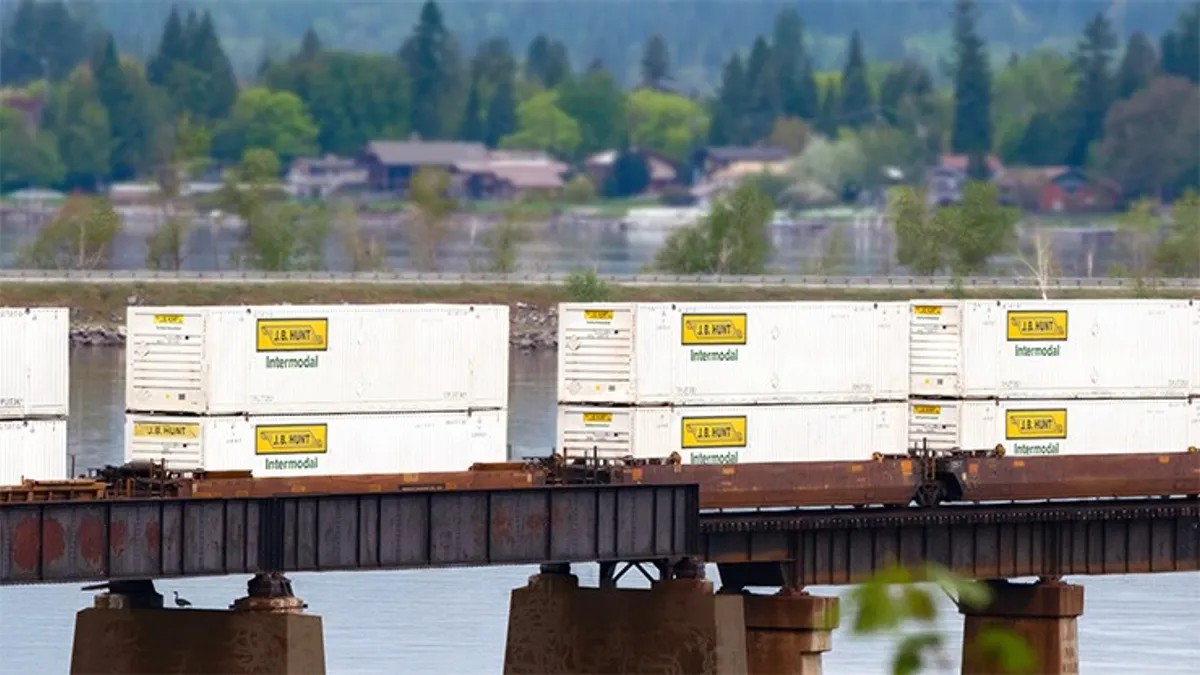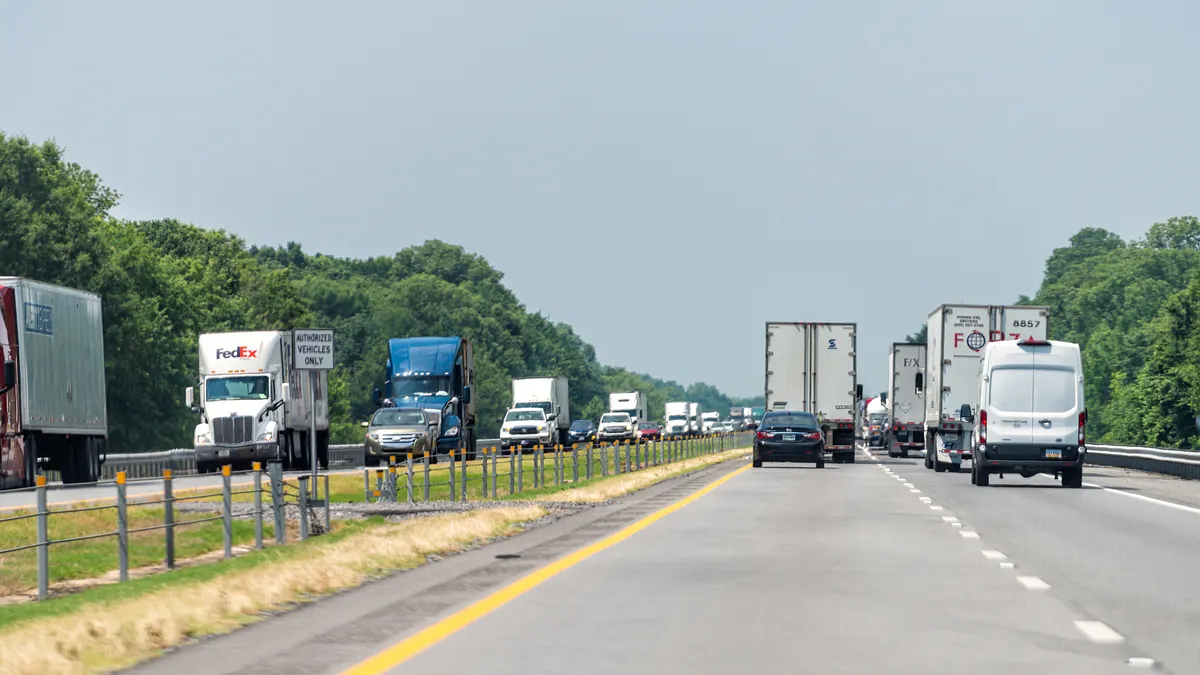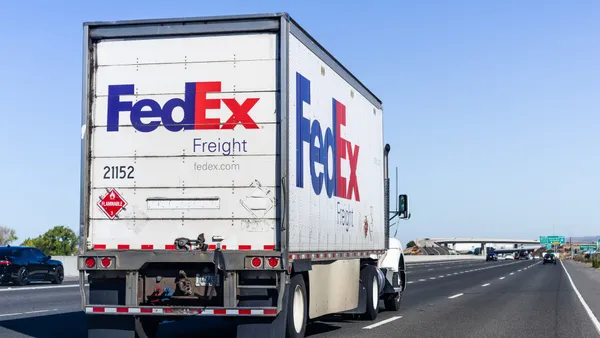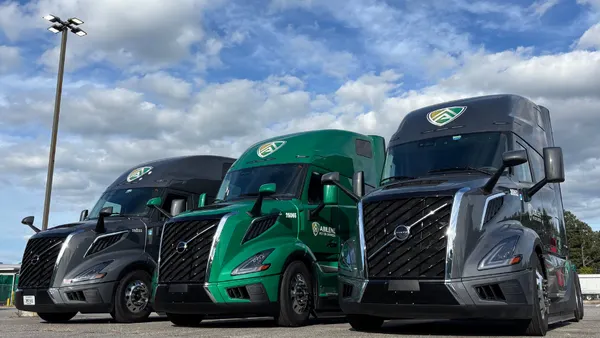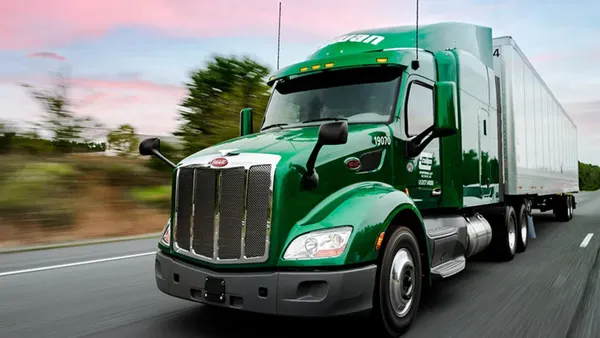J.B. Hunt Transport Services’ peak season surcharges are beginning earlier this year due to global trade complexities, executives said during a Q2 earnings call Tuesday.
“As trade policy negotiations continue, we are anticipating continued volatility and increasing demand from our customers. To prepare and position capacity, we are engaging in customer discussions about anticipated peak season surcharges in July,” Spencer Frazier, EVP of sales and marketing, told Trucking Dive in an email.
Ultimately, a lack of an accurate forecast and potential for volatility given the current circumstances is why peak season surcharges will start earlier this year, Frazier said in the earnings call.
Some customers, according to J.B. Hunt, have paused certain items, pulled inventory forward and all of them are reevaluating sourcing strategies, creating a dynamic forecasting challenge for the company, Frazier said. Others continue to execute demand-driven strategies or are making changes to their country of origin and manufacturing plans.
J.B. Hunt also heard assorted feedback from customers on volume expectations. Some shippers expected to have extra business in July while others anticipated to have the same peak they had last year, Darren Field, EVP and president of intermodal, said in the call.
Because of the contrasting feedback from customers, J.B. Hunt wanted to build a plan to not be caught by surprise and not be forced to take on cost, Field said.
“That was essentially a peak-like event that our shareholders don't deserve to take on that cost and we built a program for our customers,” he said. If volumes don’t surge, customers won’t have to pay for excess capacity, Field said.
Experts from DAT had already warned of an early peak season signaling a challenging market ahead for the trucking industry. Shippers adjusting imports due to tariffs had already created an uneven and challenging month in May for carriers, brokers and shippers, Ken Adamo, DAT chief of analytics and VP of strategy and business development, said in a June news release.
With new tariffs slated to go into effect later this summer, shippers are looking to frontload more cargo to get ahead of new duties.
“We can all see ocean vessels are bringing more cargo in through California today than they were several weeks ago,” Frazier said. “Traditionally, that translates into domestic intermodal at some point, and so we'll have to wait and see, but we're prepared to help our customers whenever they need it.”


